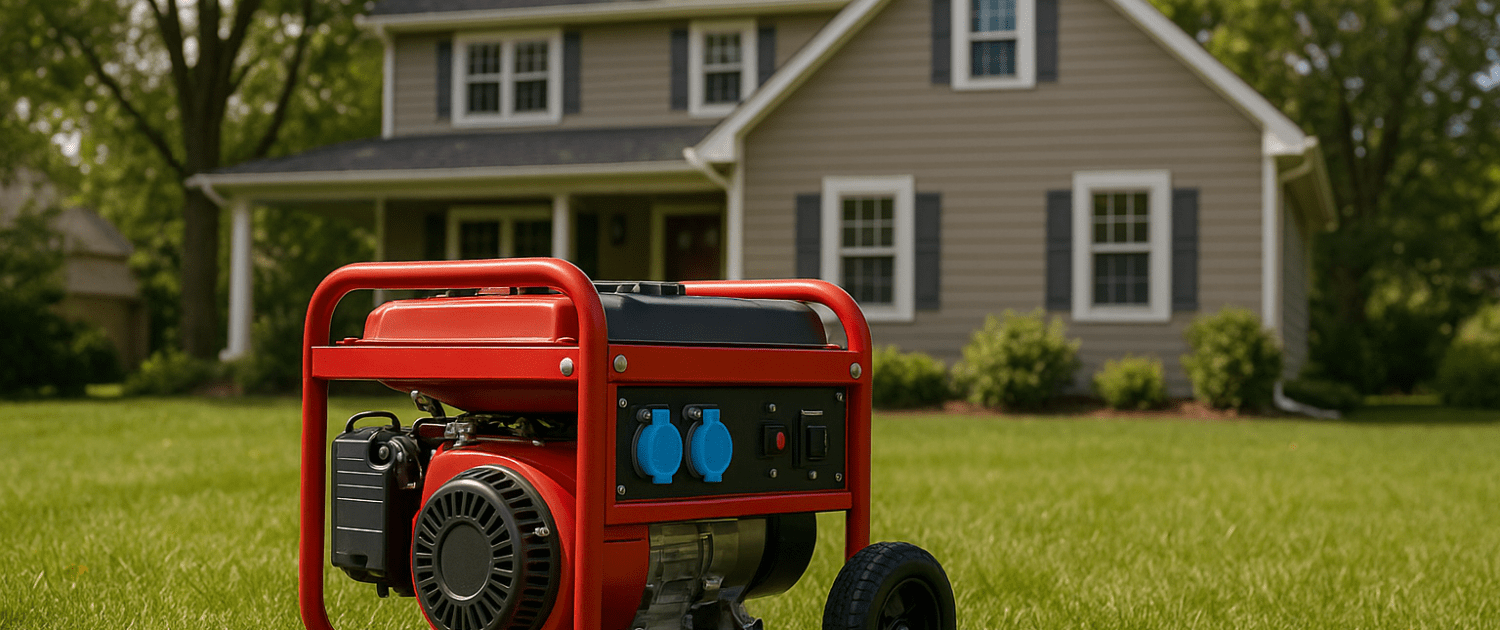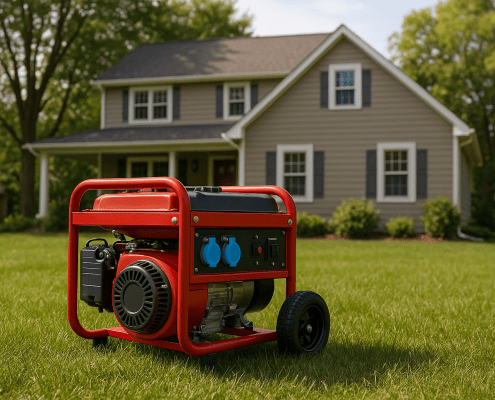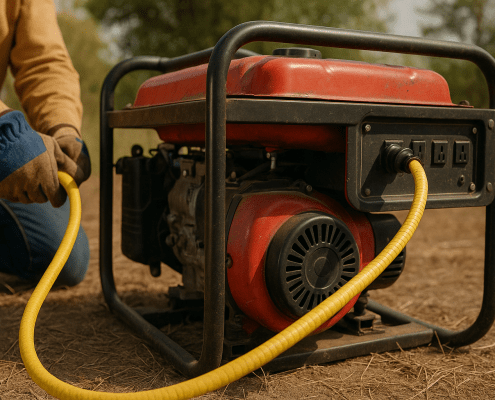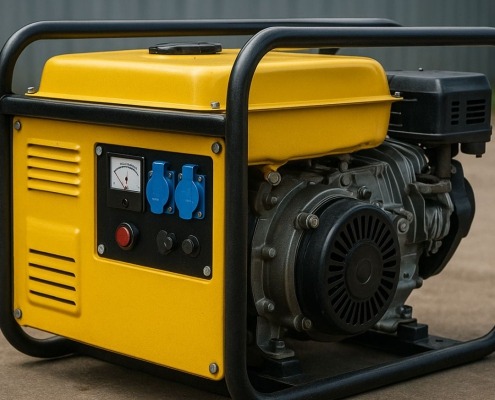Generators Explained: Portable, Standby, Inverter and Diesel
Steven E / Friday July 11, 2025
Shopping for a generator but confused by all the different types? From portable to standby, inverter to diesel, each type of generator has its pros, cons, and best uses. Here’s a simple breakdown to help you understand the differences and pick the right one for your needs.
The information in this article may not apply to your specific appliance model. We recommend consulting your manufacturer’s documentation or contact us with any questions.
Why Choosing the Right Generator Matters
Generators are more than just a backup plan. The right model can save you money, improve safety, and make life easier in an emergency or off-grid situation. But the wrong generator? It could leave you underpowered, over-budget, or even damage sensitive electronics.
Here are a few common scenarios:
- You live in a hurricane-prone area and want peace of mind when the power grid goes down.
- You’re a contractor who needs reliable power on a remote worksite.
- You love camping or RVing and need quiet, clean power for your adventures.
- You own a small business and can’t afford to lose refrigeration or computers during an outage.
Each of these has very different needs, and that’s where understanding the different types of generators comes in.
The Four Main Types of Generators
There are dozens of models out there, but most fall into one of four categories: portable, standby, inverter, and diesel. Below we’ll break each down so you can see the pros, cons, and ideal use cases.
Portable Generators: Flexible and Affordable
Portable generators are the most common and recognizable type. As the name suggests, they’re designed to move around easily and are great for temporary power needs.
How They Work
Portable generators are powered by gasoline and have standard outlets so you can plug in appliances, tools, or extension cords directly.
Best For:
- Short-term power outages at home
- Powering tools at a construction site
- Camping trips where weight and size aren’t critical
Pros:
- Affordable compared to other types
- Easy to use and transport
- Available in a wide range of power outputs
Cons:
- Noisier than other types
- Produces “dirty” power that can damage sensitive electronics
- Requires refueling every few hours
- Not intended for whole-home backup
If you just need something simple and affordable for occasional use, a portable generator is an excellent choice.
Standby Generators: Reliable Whole-Home Power
For those who want seamless, automatic backup power, a standby generator is hard to beat. These are permanently installed outside your home and connect directly to your electrical system and fuel supply (usually natural gas or propane).
How They Work
When the power goes out, a standby generator automatically kicks in within seconds, powering everything you’ve connected it to.
Best For:
- Homeowners who need whole-house backup power
- Businesses that can’t afford downtime
Pros:
- Automatic operation, no manual starting required
- Powers your entire home or business
- Runs on natural gas or propane for longer run times
- Quieter than portable generators
Cons:
- Expensive to purchase and install
- Requires professional installation and regular maintenance
- Not portable
If you live in an area with frequent outages or can’t risk being without power, a standby generator is worth the investment.
Inverter Generators: Clean, Quiet Power
Inverter generators are a newer type of portable generator that delivers power more cleanly and quietly than traditional models. They’re great when you need to power sensitive electronics or just want a more pleasant experience.
How They Work
Instead of constantly running at full speed, inverter generators adjust their engine speed to match the load, which makes them more efficient and quiet.
Best For:
- Camping, tailgating, and RVing
- Powering sensitive electronics like laptops and medical devices
- Homeowners who want a quieter backup option
Pros:
- Produces clean, stable power for electronics
- Very quiet operation
- Lightweight and easy to carry
- More fuel-efficient
Cons:
- More expensive per watt than standard portable models
- Lower maximum power output
- Not designed for whole-home use
If you value quiet, clean power for small to medium needs, an inverter generator is your best bet.
Diesel Generators: Rugged and Long-Lasting
Diesel generators are the go-to choice for heavy-duty, long-term power needs. You’ll see them on job sites, hospitals, and anywhere reliability and longevity are critical.
How They Work
Diesel generators use a diesel engine, which is more efficient and longer-lasting than a gasoline engine, especially under heavy loads.
Best For:
- Large job sites or industrial applications
- Businesses with mission-critical power needs
- Long-term, heavy-duty use
Pros:
- Extremely durable and reliable
- Long lifespan with proper maintenance
- Handles large loads well
- More fuel-efficient at high loads
Cons:
- Loud and heavy
- Expensive to buy and maintain
- Not ideal for residential neighborhoods
If you need serious, dependable power and don’t mind the extra cost and noise, diesel is a solid choice.
Key Factors to Consider When Choosing a Generator
Now that you know the main types, here are some things to keep in mind as you shop.
- Power Needs: Figure out how much power (in watts) you need. Add up the wattage of all the appliances and tools you want to run at the same time. It’s better to have a little extra capacity than not enough.
- Portability: Do you need something you can move around or will it stay in one place? For RVs and camping, you’ll want lightweight and compact. For whole-home backup, stationary is fine.
- Noise Level: If you’re using it in a quiet neighborhood or campground, noise can be a big factor. Inverter and standby models are much quieter than standard portable or diesel units.
- Fuel Type: Consider what fuel is readily available and convenient for you: gasoline, diesel, natural gas, or propane.
- Budget: Prices vary widely. Portable models can be under $500, while standby systems can cost $5,000 or more with installation.
Final Thoughts: Which One Should You Choose?
At the end of the day, the right generator depends on what you need it for.
- If you want affordable, flexible power for occasional use, go with a portable generator.
- If you need whole-home protection and don’t want to lift a finger, choose a standby generator.
- If quiet, clean power for camping or electronics is your priority, an inverter generator is perfect.
- And if you need serious, rugged, long-term power, a diesel generator will serve you well.
The most important thing is to think through your specific situation and make sure you match your generator to your needs, and your budget. A little planning now means you’ll be ready when the power goes out or you hit the road.
Where To Find Us
If you need any replacement parts for your appliances, you can enter your model number at AppliancePartsPros.com to locate and order them quickly. Most orders arrive in just two business days, and we have tons of great information in our repair help section and YouTube videos to help you troubleshoot.
Stay connected with the latest DIY tips, tutorial videos, and repair guides by following us on Facebook, Instagram, and Twitter. We love hearing about your repair stories and successes. If you need more help or want personalized guidance, feel free to reach out. We’re ready to help you take on your next project with confidence!
With nearly a decade of experience in providing top-notch customer service regarding appliance parts and repair, Steven enjoys sharing practical advice, troubleshooting tips, and interesting information to help readers stay informed.





